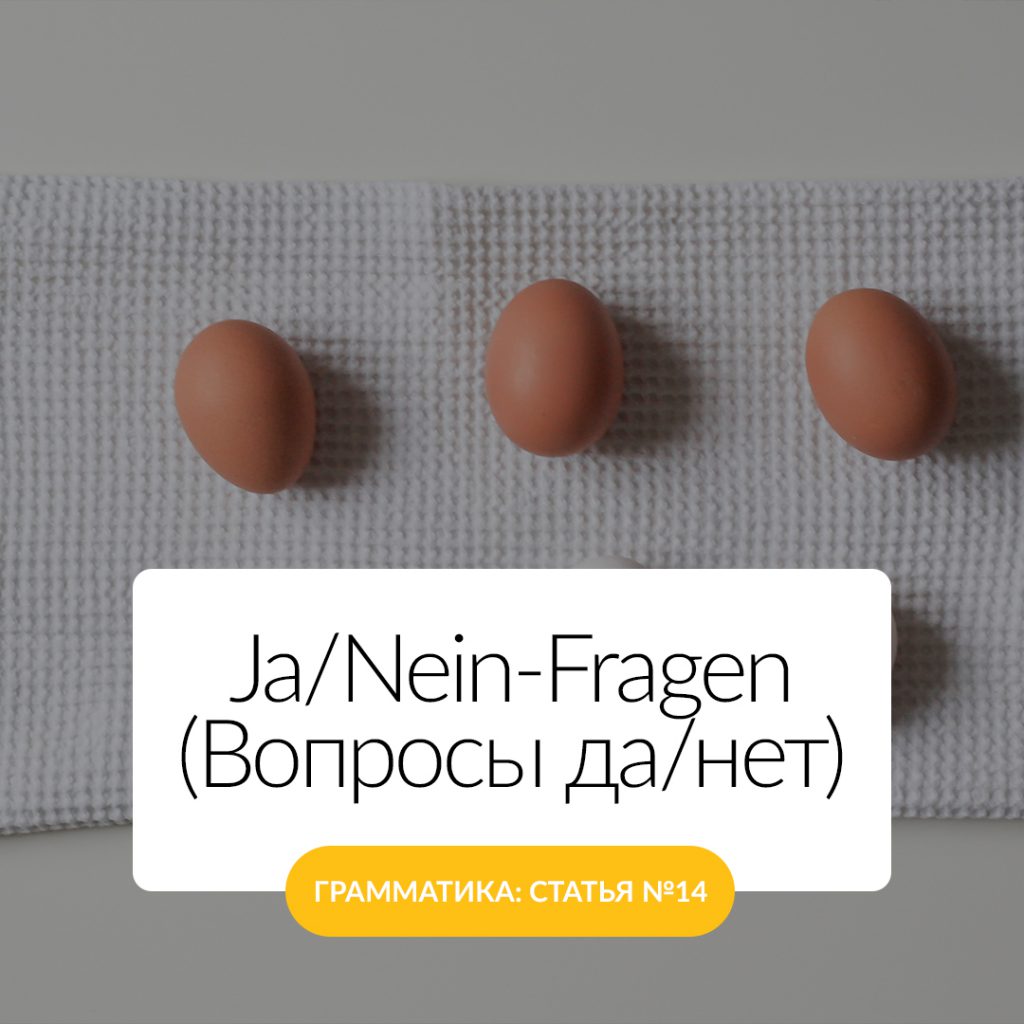In the previous grammar, we discussed how to ask questions with interrogative words (“wie?” – “how?”, “Was?” – “what?”, “Wer?” – “who?”). Today we will analyze Ja / Nein-Fragen (questions, answers to which can be “yes” or “no”).
To ask such a question you need to move the verb from the second place, as in the affirmative sentence, to the first.
Er heißt Jakob – his name is Jacob.
Heißt er Jakob? – his name is Jacob?
Sie kommt aus Hamburg – she is from Hamburg.
Kommt sie aus Hamburg – is she from Hamburg?
In Russian, the key role is played by interrogative intonation, not the word order, but in German, intonation is also important. For example, when there are several members in a sentence, and we ask a question about one of them.
Gehen wir heute ins Kino? – are we going today (or tomorrow?) To the cinema?
Gehen wir heute ins Kino? – are we going to the cinema today (or to the theater?)?
We answer such questions with simple affirmative sentences, at the beginning of which is the answer “ja” or “nein”, separated by a comma:
Sprechen Sie Spanisch? – do you speak Spanish?
Ja, ich spreche Spanisch – yes, I speak Spanish.
Nein, ich spreche Spanisch nicht / ich spreche kein Spanisch – no, I do not speak Spanish.
Sprechen Sie kein Spanisch? – you do not speak spanish?
Nein, ich spreche kein Spanisch – no, I do not speak Spanish.
Doch, ich spreche Spanisch – no, I speak Spanish.
“Doch” is an objection to an objection. When you are asked in Russian: “you do not speak Spanish?”, Then a paradox arises when opposite answers have the same meaning: “yes, I do not speak Spanish” and “no, I do not speak Spanish”. To avoid this in German there is a great word “doch”.
In fact, there are not many differences from the Russian language. The main thing to remember is that the verb in the interrogative sentence is transferred from the second place to the first, and the rest is almost the same logic.

